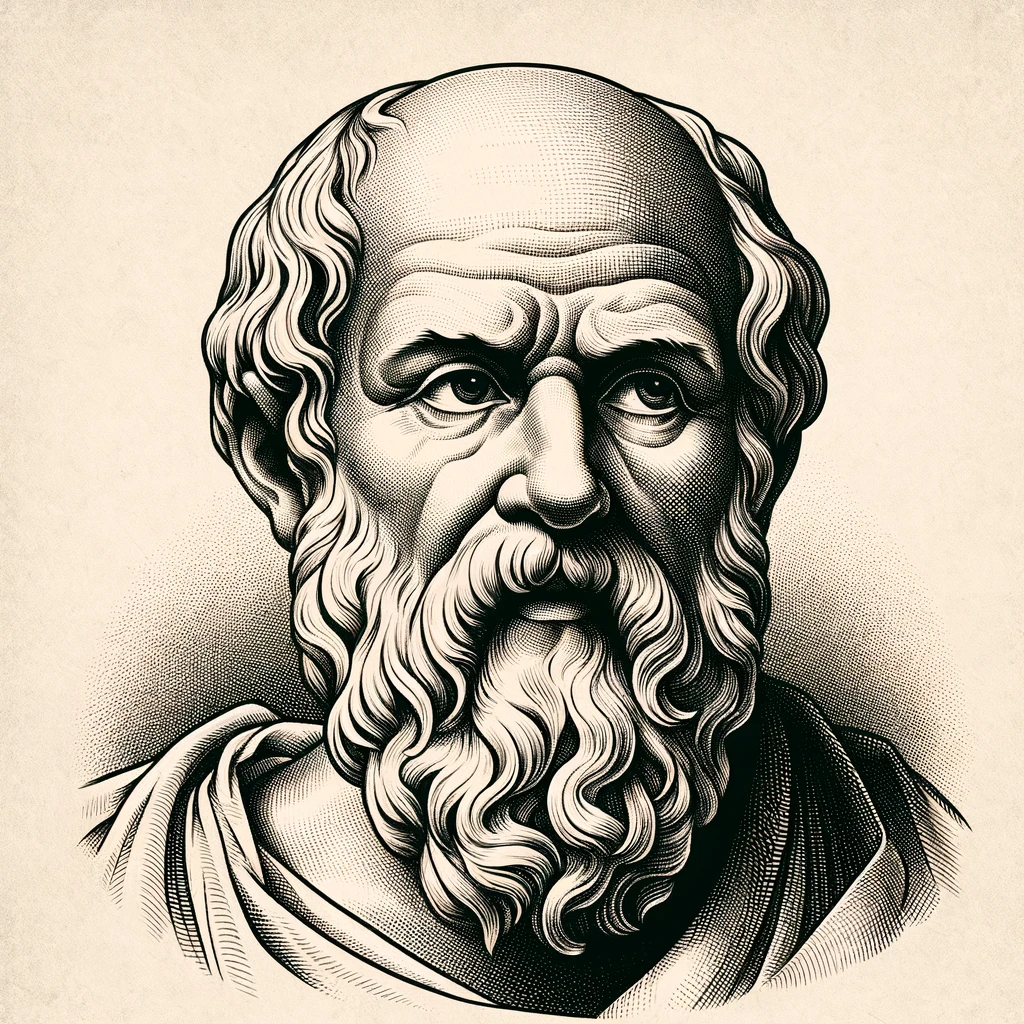Introduction to the Enigmatic Beginnings of Socrates
In the annals of history, few names resonate with the echo of wisdom and the quest for truth as profoundly as Socrates. His life, a tapestry woven with the threads of philosophical genius, began in the heart of ancient Athens. Amidst the hustle of the Agora and the serene beauty of the Acropolis, the story of a thinker, who would one day become the cornerstone of Western philosophy, began to unfold.
Socrates’ Early Life: The Making of a Philosopher
Born around 470 BC, Socrates was the son of Sophroniscus, an Athenian stonemason, and Phaenarete, a midwife. His humble beginnings in a working-class family did not hint at the monumental impact he would have on the course of philosophical thought. Yet, it was this very ordinariness that would later become a hallmark of his philosophical method, a testament to his belief that wisdom could be sought and cherished by every soul.
The Cultural Melting Pot of Ancient Athens
Athens, a city-state at the zenith of its cultural and political power, served as the perfect backdrop for the young Socrates. It was a place where ideas flowed as freely as the waters of the Ilissos, a place where democracy was not just a form of governance but a way of life. In this vibrant milieu, Socrates’ intellect found the nourishment it needed to grow and flourish. The festivals, the dramatic plays, the spirited political debates – all contributed to shaping the mind of Socrates, instilling in him a profound desire to understand the essence of virtue, justice, and truth.
The Influence of Philosophical Pioneers
Socrates did not emerge in isolation. The intellectual landscape of Athens was dotted with thinkers and teachers, each offering a unique perspective on life and the cosmos. It was Anaxagoras, with his notion of Nous (Mind) as the architect of order in the cosmos, and the teachings of Pythagoras, emphasizing the harmony of numbers, that offered the initial sparks to the kindling of Socrates’ philosophical inquiry.
The Socratic Method: A Quest for Wisdom
Socrates, often seen wandering the streets of Athens, engaging with citizens from all walks of life, was a familiar figure. His method was simple yet revolutionary. Through dialogues, he would dissect the complexities of human thought, often leading his counterparts to a state of aporia, a realization of their own ignorance. This was not to belittle but to enlighten, to initiate the journey from ignorance to knowledge.
Socrates’ Philosophical Convictions and Ethical Stance
Even in his early years, the seeds of Socratic philosophy were evident. He staunchly believed that an unexamined life was not worth living and that virtue was the greatest good. His commitment to truth and virtue was unyielding, often putting him at odds with the norms and expectations of society. Yet, it was this very steadfastness that would pave the way for his eternal legacy.
We recognize that this is just the beginning of a much deeper exploration. We will delve into the intricacies of Socrates’ life, from his humble beginnings to the profound impact of his final days. Together, we will unravel the lessons hidden within his philosophies and teachings, applying them to our modern world. Stay tuned as we continue to explore and learn from one of history’s greatest thinkers, discovering timeless wisdom that resonates through the ages.”









